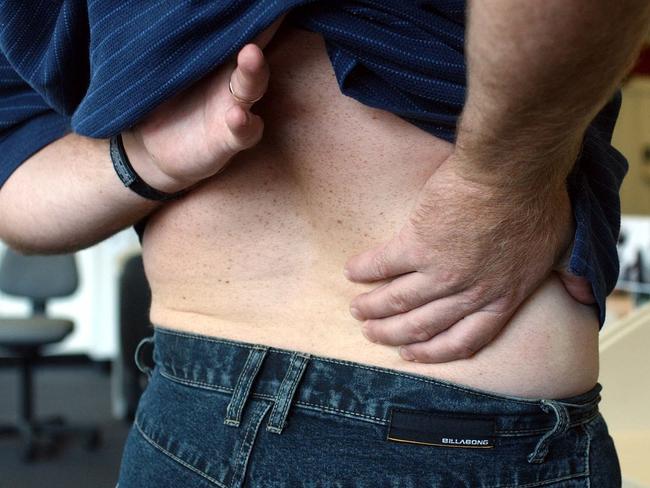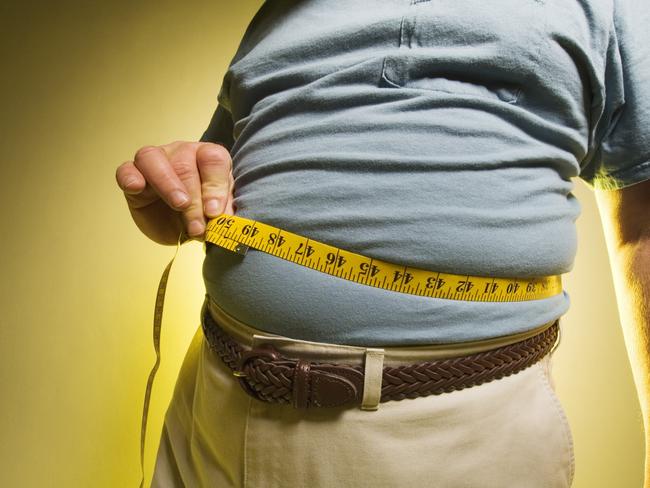Monash study uncovers ‘surprising’ reason men get back pain
It’s a small change that can creep up on us as we age. But it’s now been found to be a “surprising” contributor as to why men get back pain.
Victoria
Don't miss out on the headlines from Victoria. Followed categories will be added to My News.
Men who put on as little as three kilograms in five years are more likely to have back pain and even suffer long-term disability a decade later.
A new study led by Professor Anita Wluka from the Monash University School of Public Health and Preventive Medicine has found a connection between back pain and a change in men’s weight and body composition.
Body composition is their percentage of fat, bone and muscle.
The news is not good. It found a small weight gain can lead to a pain in the back for many men as they get older.
The study examined men who were part of the Geelong Osteoporosis Study who had no or low-intensity back pain and disability when they joined.

This valuable study has run for 20 years and involves 695 men living in Geelong who are representative of the Australian male population.
“Ten years later we found that a small weight gain was enough to increase their risk of back pain. That was surprising,” Professor Wluka said.
“We had people who had been monitored for 15 years, and between the base year zero and year five, they’d gained only maybe three kilos, and that was enough to change things over the next 10 years.”
She said it showed even a small weight gain in men can set them on the path to future health issues, particularly in older men.
Geelong grandfather John Perisic, 77, has been part of the Geelong Osteoporosis Study since it started. He put on 4kg since 2003 and now has back pain.
“My wife said ‘you are getting fat’,” Mr Perisic joked, but his back pain is serious and debilitating.
He retired 18 years ago and while walking helps relieve his back pain, Mr Perisic says it has had an impact.
“I gave up golf because it,” he said. “I continued to play tennis as it is a different stroke, but gave it up this year. Not because of my back, I am a diabetic and I had a car accident and my family decided I shouldn’t be driving so I didn’t renew my license.”

The Monash study looked at weight, body mass index (BMI), abdominal circumferences, fat mass and muscle in the men at the beginning and end of the 10-year period.
It found that across the whole age cohort, only a one unit increase in BMI over the preceding five years, which was equivalent to 3.1kg weight gain, was associated with increased back pain and high disability a decade later.
Professor Wluka said one of the reasons could be a lack of muscle as men aged, as in older men higher muscle was associated with a reduced risk of developing back pain.
“These results demonstrate another detrimental consequence of weight gain,” she said.
The team will now do a study to see if women are impacted the same way.
Professor Wluka said that the prevalence of back pain was higher in women compared with men, “due to anatomical, biological, psychological and sociocultural factors that differ in men and women,” she said.
“However, this study is important because, in men of the working age group (45–74 years), the prevalence of back problems including back pain is higher in Australia and they are off work longer – so predictive factors for back pain need to be examined in men and women separately and can provide clinicians with risk factors to look out for.”
PAIN IN THE BACK
• Around four million people in Australia are living with back problems
• Back pain and related disability limit involvement in regular work, physical activity, socialisation and personal care, costing $4.8 billion annually in Australia
• Back problems are the third leading cause of disease burden overall in Australia




